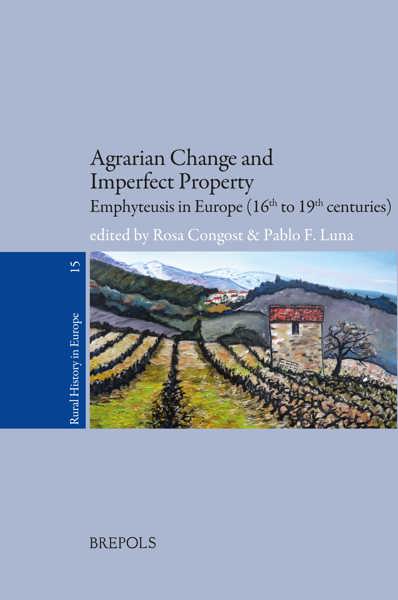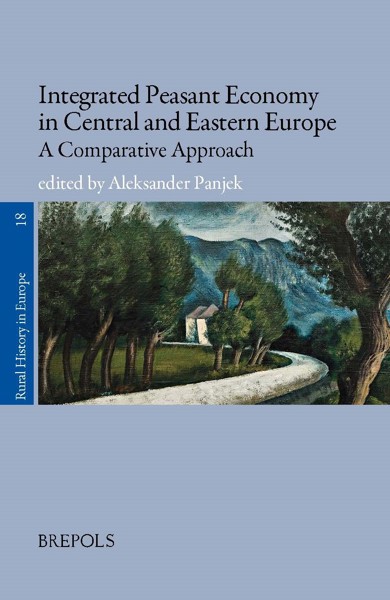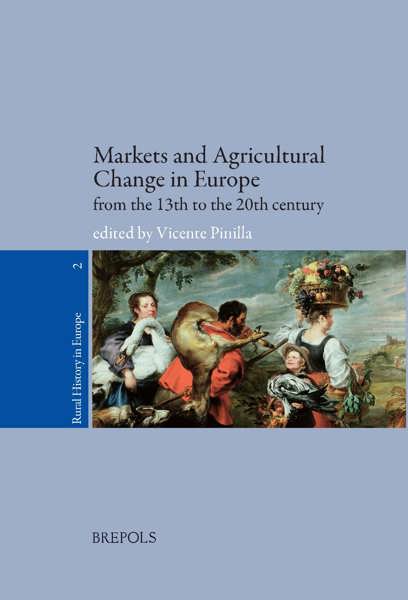
The Formation of Agricultural Governance
The Interplay between State and Civil Society in European Agriculture, 1870-1940
Jordi Planas, Anton Schuurman, Yves Segers (eds)
- Pages: 271 p.
- Size:156 x 234 mm
- Illustrations:21 b/w, 4 tables b/w.
- Language(s):English
- Publication Year:2025
- € 84,00 EXCL. VAT RETAIL PRICE
- ISBN: 978-2-503-60049-9
- Paperback
- Available
- € 84,00 EXCL. VAT RETAIL PRICE
- ISBN: 978-2-503-60050-5
- E-book
- Available
Jordi Planas is associate professor at the Department of Economic History, Institutions, Politics and World Economy of the University of Barcelona.
Anton Schuurman is a researcher in the Economic and Environmental History Chair Group at Wageningen University.
Yves Segers is professor of Rural History and director of the Interfaculty Centre for Agrarian History (KU Leuven)
This book unravels how the agricultural sector and the rural world in Europe became more and more organised within capitalism in the years 1870-1940, and this with the aim of tackling the important challenges of the time. The focus is not so much on the myriad of individual farmers’ actions, but on the collective efforts undertaken through the interplay between the state and the agricultural civil society.
A wide variety of actors, from landowners associations, farmers’ unions, cooperatives, scientific institutions and researchers to farmers themselves (or civil society) played a critical role in the process of drafting a policy agenda, developing agricultural policies and were instrumental in implementing them in close relationship with the state. The result was a metamorphosis from mobilisation and representation of agrarian interests to a form of self-government or co-government of the agricultural sector at the national level, which would only reach its highest point after the Second World War.
These issues are explored by established rural historians, covering a period of seven decades (1870-1940). The papers provide a wide geographical perspective, from the north of Europe to the Mediterranean.
1. The interplay between state and civil society in the modernisation of European agriculture, 1870-1940. An introduction
Jordi Planas, Anton Schuurman, Yves Segers
2. Dutch agricultural governance, 1870s-1930s. The making of agricultural institutions and policies as an outcome of the co-evolution of state and civil society
Anton Schuurman
3. Agricultural policy in an urban economy: the United Kingdom, 1870-1940
Paul Brassley
4. The time of the comices in France, 1860-1914
Nadine Vivier
5. The interplay between winegrowers’ organisations and the state in France and Spain in the early twentieth century
Jordi Planas
6. State-sponsored bodies or autonomous organisations? The state and cooperatives in Greece, 1900-1936
Dimitris Angelis-Dimakis
7. Parnell and Plunkett: gentry leadership and the class politics of reorganising Irish agriculture
Tony Varley
8. Agrarian organisations and political parties in Europe, 1870-1939
Miguel Cabo and Juan Pan-Montojo
9. The Swedish Milk Propaganda, a small association with keys to the corridors of power in the 1920s and 1930s
Carin Martiin
10. Plant improvement, the modernising state, and the contested evolution of wheat breeding in Switzerland, 1880-1940
Juri Auderset
11. Enough time to adapt? The West Flanders red, knowledge networks and cultures of breeding in interwar Belgium
Yves Segers




